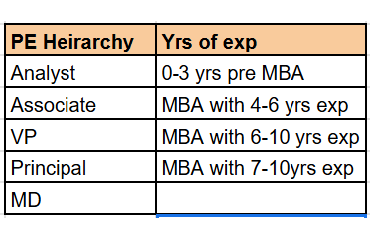
Bangalore has long been called the Silicon Valley of India. The title is not just about software or startups; it also reflects the complex financial ecosystem that sustains these industries. Every booming tech hub requires equally sharp financial minds, and the city has become a hunting ground for CFOs, financial controllers, and strategic finance leaders. Yet, breaking into a senior finance role here is not as simple as having a degree or a decade of work experience. It is about aligning technical mastery with strategic insight, while navigating an environment that is global in pace but uniquely Indian in nuance.
Understanding the Bangalore Finance Landscape
Senior finance roles in Bangalore are shaped by three distinct forces. First, the rapid growth of startups that scale faster than traditional businesses, creating a demand for leaders who can balance agility with governance. Second, the entry of multinational corporations that expect Indian teams to mirror global compliance standards. Third, the deep integration of technology in every financial function, from ERP systems to AI-driven forecasting tools.
If you aim to secure a leadership role, you cannot view finance as accounting alone. Finance in Bangalore is strategic storytelling, risk management, compliance assurance, and growth navigation rolled into one.
The Weight of Credentials
Educational pedigree still matters. Chartered Accountants, CPAs, or MBAs from reputed institutions are often the entry ticket to conversations with boards and recruiters. Yet credentials alone will not open the door. They only establish credibility. The differentiator is how you translate this knowledge into decision-making in real business contexts.
For example, a CA with ten years of routine audit experience may struggle to compete with a finance professional who has led M&A negotiations or implemented SAP across multiple geographies. Senior positions reward applied expertise, not just theoretical knowledge.
Building Experience That Speaks
Every step in your career must build a portfolio of stories that you can tell at the leadership table. Did you restructure debt during a cash-flow crunch? Did you guide a startup through its first funding round? Did you implement cost-saving strategies that freed capital for growth? These experiences matter more than the number of years you spent in a company.
Bangalore’s recruiters often look for resilience in navigating uncertainty. The city’s economy is driven by sectors like SaaS, fintech, and biotech, all of which face volatile global markets. Leaders who can steer through turbulence with calm confidence are valued far more than those who only shine in stable environments.
Technology as a Finance Multiplier
Senior finance leaders in Bangalore cannot afford to be tech-averse. Today, understanding Tally or SAP is only the baseline. Boards expect finance heads to work with cloud-based ERPs, data visualization tools, and predictive analytics platforms. A leader who can interpret complex dashboards and communicate what the numbers mean for tomorrow’s growth holds an undeniable edge.
Consider how investor calls unfold in a fast-scaling startup. The CEO may talk vision, but the CFO must ground that vision in numbers. If you can pull live data, showcase revenue pipelines, and forecast risks with clarity, you become indispensable.
Networking in the Right Circles
In Bangalore, opportunities for senior finance roles rarely land through cold applications. They emerge from boardroom recommendations, closed-door conversations, and trusted referrals. Networking is not just about LinkedIn connections; it is about building credibility in CFO forums, professional associations, and alumni networks.
Attending seminars hosted by ICAI chapters, engaging with angel investors, or contributing thought leadership in finance panels gives visibility that resumes cannot. When board members already see you as a thought leader, you are not applying for roles, you are being invited to take them.
Soft Skills That Carry Hard Weight
Technical expertise gets you shortlisted, but leadership presence secures the chair. Senior finance professionals in Bangalore are expected to communicate with clarity, mentor teams, and hold their own in conversations with global investors. This requires confidence without arrogance, authority without rigidity.
For example, a CFO negotiating with a European investor must be culturally sensitive, precise in financial detail, yet persuasive enough to instill confidence in the company’s future. Such skills are not taught in textbooks; they are built through deliberate practice and exposure.
The Strategic Mindset
What sets apart senior finance leaders is their ability to think beyond the numbers. Finance at the top is less about debit and credit entries, and more about shaping business direction. If you can step into conversations about market expansion, technology investments, or regulatory risks, you move from being a financial manager to being a business strategist.
Boards in Bangalore actively look for this shift. A finance head who merely reports numbers is replaceable. A leader who uses those numbers to influence where the company heads is irreplaceable.
Final Thoughts
Securing a senior finance position in Bangalore is not about luck. It is about a deliberate journey where technical expertise, strategic thinking, technological adaptability, and leadership presence intersect. The city rewards those who can blend numbers with narratives, compliance with creativity, and precision with vision.
The finance roles of tomorrow will not just be about balance sheets. They will be about balancing growth with risk, local operations with global standards, and numbers with stories. If you prepare with that mindset, Bangalore will not just be a job market, it will be your leadership arena.
Don’t stress about searching every career page or job site. Stay ahead with the latest opportunities from different sources right here!
Related Articles
You've gone through an education system that probably never taught you anything about professionalism, logical deconstruction, and comfort with ambiguity. You may have tremendous bookish knowledge, but lacking these three attributes is an immediate invisible red flag that will stop you from getting the job or the promotion you always wanted.
Let's throw some light on the top-5 common mistakes that highlight your lack of these attributes, and what you should be doing instead
- Showing up late without informing your interviewer/coordinator - there are genuine reasons one could be running late, but that needs to be duly communicated ahead of the planned interaction. Inform every marked on an invite, drop a text or give a call, but keep your stakeholders informed. Their time is as much valuable as yours.
- Turning up unprepared for the interview - if you are turning up unprepared, why is it that you are turning up at all? why waste your and interviewer's time? You are better off declining the opportunity, instead of ruining your reputation unnecessarily. You must invest 1 hour to read about the company, the opportunity, some information in the public domain and so on, if you have chosen to show up for an interview.
- Going silent instead of communicating effectively with your stakeholders - it might come as an insight but everyone knows you would evaluate multiple opportunities before chosing one, everyone knows that your decision might be influenced by your loved ones, and everyone is okay with your being unsure, but nobody likes to be left wondering about what might be happening. So, good, bad or ugly, communicate, communicate and communicate! You'll build more relationships that you ever thought, and you never know, one or more of these relationships may turn gold in the times to come.
- Rambling stuff that does not make sense - let us fill you in on another secret, nobody - not even the most successful individuals can know everything about everything in the world. So, when presented with topics/questions you have no clue about, you got to either draw parallels from what you have expertise on, rationally break down the information you are presented with to come up with simple yet logical answers, or admit you do not know anything about this but can talk about something relevant to the opportunity being discussed in detail.
- Demanding a bomb without a concrete rationale - the whole world is underpaid, friends! who doesn't want more, but that's not how it works. Your next compensation cannot ignore your current and/or previous compensations. If you chose to take a sabbatical, took an opportunity by taking a haircut, or become an entrepreneur that eventually did not work out, you have to make peace with your decision. Nobody else had a say in that! You can definitely demonstrate additional skills/knowledge that you acquired during this period (that surely has a value), but that value isn't the only figure on which your next compensation will be decided on. So, learn about the market standards and try to limit your ask within the broadly acceptable range.
Let’s be honest — job hunting today feels like swiping right on a dating app where no one ever replies. Employers can’t find the right talent, job seekers chase ghost listings, and somewhere between “We’ll get back to you” and “Position closed,” everyone loses their sanity.
Enter Aplushub — the career saver we didn’t know we needed.
Why Aplushub Exists
Born from the chaos of the modern job market, Aplushub was built on one bold idea — quality over quantity. It’s not just another job portal flooding you with random roles. It’s a curated ecosystem that blends AI precision with human insight to filter out the clutter and keep only what truly matters: authentic, relevant, and verified opportunities.
What It’s Solving
Aplushub is tackling the biggest pain in job search — noise. Fake jobs, expired links, spam recruiters, and endless scrolling are replaced by clean, credible listings. The platform categorizes openings into Free Jobs (posted directly by employers) and Premium Jobs (handpicked by Aplushub’s research team from trusted sources and networks). So, no more digital wild goose chases — only jobs worth your time.
Remote Jobs? Absolutely.
Whether you’re working from your couch in Chennai or a café in Manali, Aplushub’s got you covered. The platform features a dedicated Remote Jobs section — tailored for professionals who value flexibility. It connects you with employers who believe talent shouldn’t be tied to geography.
Why It’s a Win-Win
For job seekers, Aplushub is your career compass — one dashboard, hundreds of genuine opportunities, and no shady “DM for job” drama.
For employers, it’s a hidden gem. Posting is free, candidate access is simple, and you get applicants who are genuinely interested — not bots in disguise.
Bonus Perk: The *OpenBook* Advantage
Here’s where Aplushub really flips the script — OpenBook, its transparency-first feature. It gives job seekers a peek into real hiring insights, company trends, and recruiter updates, turning job search into a smarter, more informed experience. No more guessing what employers want; OpenBook hands you the inside scoop to make data-backed career moves.
The Price Tag (Spoiler: It’s Almost Free)
Aplushub keeps things real and affordable. You can explore its free tier, test-drive premium access with ₹50/Month, or go all in with ₹499 for a full year— basically less than your monthly coffee budget to land your next big opportunity.
So whether you’re hiring, hunting, or just tired of the chaos — Aplushub is here to bring sanity (and a smile) back to your career journey.
👉 Visit AplusHub.com — where jobs finally make sense.
Private Equity (PE) is one of the most coveted industries in finance. One of the highest paying industries, Private Equity (PE) attracts absolute creme-de-la-creme of MBA graduates, management consultants, and investment bankers. Also highly competitive, PE funds hire only a handful of investment professionals across levels in a year.
A+ research team has spoken to multiple PE professionals across domestic and global PE funds in India. In the table below, we have compiled average base compensation, variable (bonus) and carry components at blue chip global PE funds in India.
| Role | Yrs of exp | Large Global PE Funds (base salary) | Bonus (as a % of base) | Carry | |
| Analyst | 0-3 yrs pre MBA | $60K-$80K | 60-100% |
Notional Carry or LTI or Certain bonus is paid in the form of carry distribution in case of multi-billion dollar funds*
|
|
| Associate | MBA with 4-6 yrs exp | $100K-$150K | 80-100% | ||
| VP | MBA with 6-10 yrs exp | $200K- $250K | 90-120% |
Estimated 0.5%-2% of the carry pool for a multi billion dollar fund*
|
|
| Principal | MBA with 7-10yrs exp | $300K-$400K | 90-120% | ||
| MD | $500K+ | 100-150% | |||
| Notes: |
These figures are estimates of salaries at top global PE funds like Bain, Carlyle, TPG, Warburg Pincus, General Atlantic and the likes
|
||||
|
Buyout focused funds have 30-50% higher base salaires and respective bonuses
|
|||||
|
*These are estimates from the information gathered through our network; might change/vary with more data
|
|||||




